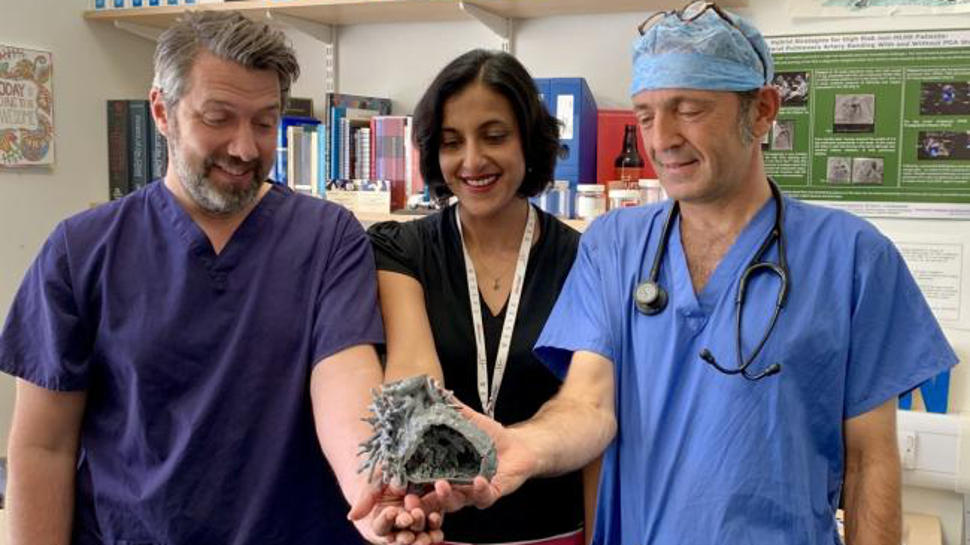3D printing is making heart surgery on children safer
And helping to minimize the amount of operations any given child will need

A UK charity is providing funding for a highly innovative project which uses 3D printing to change the way heart surgery is performed on children for the better.
The Hampshire-based charity, Wessex Heartbeat, is financing the program to transform the way heart surgery is carried out, supporting staff at the University Hospital Southampton in dealing with congenital heart disease.
- Best Electronic Medical Record (EMR) software
- Best home printer 2019: the top printers for home use
- Here are the best 3D printers of 2019
The idea is that 3D printing is used to produce a fully accurate model of the patient’s heart. Specifically, this involves working with Axial3D’s technology, a firm which specializes in the medical 3D printing arena (offering all manner of anatomical models for surgical planning, or indeed educational training).
Importance of planning
It’s the planning which is the key aspect here, with a model of the patient’s heart being produced by Axial3D from a supplied CT or MRI scan. Axial3D claims that the model is produced inside 48 hours, and it’s such a detailed replica of the heart in question, it includes tiny flaws which may have been previously missed.
This means that surgeons can carry out seriously in-depth planning before any operation, catch any potential problem areas, and indeed minimize the number of invasive procedures that a child might have to potentially undergo over the course of their life.
There’s also the potential of a second use for the heart models, which can be employed for training or practice after surgeons are done using them for planning purposes.
We’ve also seen recently that big strides are being made in the field of bioprinting, which is the 3D printing of actual tissue or organs, and could be revolutionized by a new fluid matrix method. This could have all sorts of major ramifications across fields like regenerative medicine and disease modelling, or indeed for drug screening.
Are you a pro? Subscribe to our newsletter
Sign up to the TechRadar Pro newsletter to get all the top news, opinion, features and guidance your business needs to succeed!
- Best medical alert systems of 2019
Darren is a freelancer writing news and features for TechRadar (and occasionally T3) across a broad range of computing topics including CPUs, GPUs, various other hardware, VPNs, antivirus and more. He has written about tech for the best part of three decades, and writes books in his spare time (his debut novel - 'I Know What You Did Last Supper' - was published by Hachette UK in 2013).